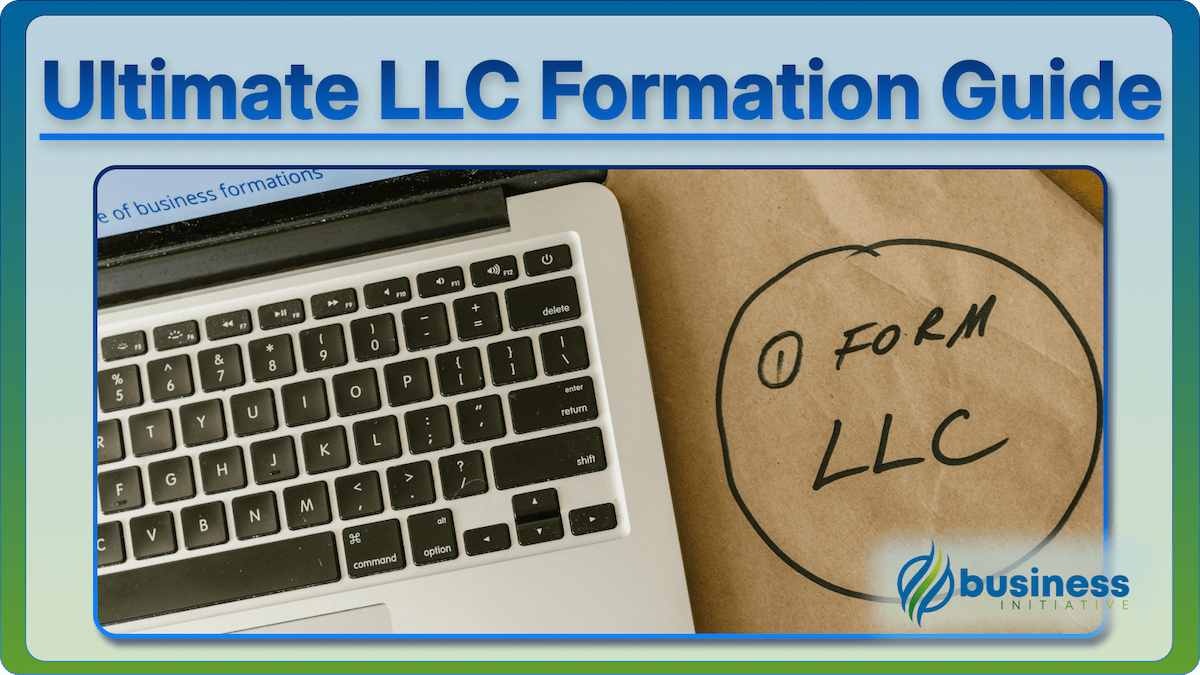You need upsell and cross-sell strategies, but generic approaches don’t work. Each business model needs different plays. This mismatch prevents you from maximizing revenue from existing customers.
Business model playbooks solve this by providing specific strategies. They outline plays for each model, which increases effectiveness and revenue. These playbooks are essential for model-specific success.
This guide provides specific plays for each major business model, helping you implement effective upsell and cross-sell strategies for e-commerce, SaaS, and services businesses.
We’ll explore why model-specific playbooks matter, e-commerce strategies, SaaS strategies, services strategies, and implementation approaches. By the end, you’ll understand how to create playbooks for your business model.
 Key Takeaways
Key Takeaways
- E-commerce focus—product bundles, add-ons, and related items
- SaaS focus—feature upgrades, seat additions, and plan upgrades
- Services focus—package upgrades, add-on services, and retainers
- Model-specific timing—optimize timing for each business type
- Test and refine—optimize playbooks based on results
 Table of Contents
Table of Contents

Why Model-Specific Playbooks Matter
Generic upsell strategies fail. When you use one-size-fits-all approaches, results are poor. This failure prevents revenue growth.
Model-specific playbooks matter because they match business needs. When you use model-specific plays, results improve. These playbooks enable effective cross-selling.
The reality: Most businesses use generic upsell strategies, which don’t match their model. Model-specific playbooks provide tailored strategies, enabling effective cross-selling.
E-Commerce Strategies
E-commerce strategies focus on product combinations. When you use e-commerce plays, you maximize product revenue.
Product Bundles
Create product bundles:
- Bundle related products
- Offer bundle discounts
- Create value bundles
- Build bundle strategy
- Create combination offers
Why this matters: Product bundles increase order value. If you bundle products, customers buy more. This strategy enables revenue growth.
Add-On Products
Offer complementary add-ons:
- Suggest product add-ons
- Offer complementary items
- Present add-ons at checkout
- Build add-on strategy
- Create enhancement offers
Why this matters: Add-ons increase order value. If you offer add-ons, customers add items. This strategy enables value growth.
Related Items
Suggest related products:
- Show related items
- Recommend similar products
- Present alternatives
- Build recommendation strategy
- Create discovery offers
Why this matters: Related items increase discovery. If you suggest related items, customers find more. This strategy enables exploration.
Upgrade Options
Offer product upgrades:
- Present premium versions
- Offer upgrade options
- Show better alternatives
- Build upgrade strategy
- Create premium offers
Why this matters: Upgrade options increase value. If you offer upgrades, customers choose premium. This strategy enables value growth.
Pro tip: Use our Cross-Sell Profitability Calculator to analyze e-commerce product combinations and identify best bundle opportunities. Test different product combinations to see which generate the most revenue.

SaaS Strategies
SaaS strategies focus on feature and plan upgrades. When you use SaaS plays, you maximize subscription revenue.
Feature Upgrades
Offer feature additions:
- Present premium features
- Offer feature upgrades
- Show advanced capabilities
- Build feature strategy
- Create capability offers
Why this matters: Feature upgrades increase value. If you offer features, customers upgrade. This strategy enables revenue growth.
Seat Additions
Offer additional seats:
- Suggest team expansion
- Offer seat additions
- Present team plans
- Build seat strategy
- Create expansion offers
Why this matters: Seat additions increase revenue. If you offer seats, customers expand. This strategy enables growth.
Plan Upgrades
Offer plan upgrades:
- Present higher tiers
- Offer plan upgrades
- Show premium plans
- Build plan strategy
- Create tier offers
Why this matters: Plan upgrades increase revenue. If you offer plans, customers upgrade. This strategy enables value growth.
Usage-Based Upsells
Offer usage increases:
- Present usage upgrades
- Offer capacity increases
- Show usage options
- Build usage strategy
- Create capacity offers
Why this matters: Usage-based upsells increase revenue. If you offer usage, customers expand. This strategy enables growth.
Services Strategies
Services strategies focus on package and service upgrades. When you use services plays, you maximize service revenue.
Package Upgrades
Offer package enhancements:
- Present premium packages
- Offer package upgrades
- Show enhanced services
- Build package strategy
- Create premium offers
Why this matters: Package upgrades increase value. If you offer packages, customers upgrade. This strategy enables revenue growth.
Add-On Services
Offer additional services:
- Suggest service add-ons
- Offer complementary services
- Present service extensions
- Build add-on strategy
- Create extension offers
Why this matters: Add-on services increase revenue. If you offer add-ons, customers add services. This strategy enables value growth.
Retainer Options
Offer retainer packages:
- Present retainer plans
- Offer ongoing services
- Show retainer options
- Build retainer strategy
- Create ongoing offers
Why this matters: Retainer options increase revenue. If you offer retainers, customers commit long-term. This strategy enables stability.
Service Extensions
Offer service extensions:
- Present extended services
- Offer service expansions
- Show additional offerings
- Build extension strategy
- Create expansion offers
Why this matters: Service extensions increase revenue. If you offer extensions, customers expand. This strategy enables growth.

Implementation Approaches
Implementation approaches execute playbooks effectively. When you implement well, playbooks work.
Customize for Your Business
Adapt playbooks to your model:
- Customize strategies for your business
- Adapt plays to your model
- Tailor approaches to your needs
- Build customization process
- Create tailored execution
Why this matters: Customization improves fit. If you customize playbooks, they match your business. This customization enables effectiveness.
Test Different Plays
Experiment with strategies:
- Test different upsell plays
- Try various cross-sell approaches
- Experiment with timing
- Build testing process
- Create experimentation culture
Why this matters: Testing finds what works. If you test plays, you discover winners. This testing enables optimization.
Measure Results
Track playbook performance:
- Measure conversion rates
- Track revenue impact
- Assess play effectiveness
- Build measurement process
- Create performance tracking
Why this matters: Measurement shows effectiveness. If you measure results, you see what works. This measurement enables optimization.
Refine and Scale
Improve and expand:
- Refine successful plays
- Scale what works
- Expand effective strategies
- Build refinement process
- Create scaling execution
Why this matters: Refinement and scaling maximize results. If you refine and scale, revenue grows. This approach enables growth.
Pro tip: Use our Upsell Opportunity Calculator to test different playbook strategies for your business model. Measure conversion rates and revenue impact to identify which plays work best for e-commerce, SaaS, or services.
Your Next Steps
Model-specific playbooks enable effective cross-selling. Choose strategies for your model, customize plays, test approaches, then refine and scale what works.
This Week:
- Identify your business model (e-commerce, SaaS, or services)
- Review relevant playbook strategies for your model
- Customize plays to fit your business using our Upsell Opportunity Calculator
- Plan initial playbook implementation
This Month:
- Implement model-specific playbook strategies
- Test different plays and approaches
- Measure conversion rates and revenue impact
- Refine plays based on results
Going Forward:
- Continuously test new playbook strategies
- Monitor performance and optimize plays
- Scale successful strategies
- Update playbooks based on business changes
Need help? Check out our Upsell Opportunity Calculator for testing strategies, our Cross-Sell Profitability Calculator for analyzing combinations, our smart upsell guide for upsell design, and our lifecycle upsell guide for timing strategies.
Stay informed about business strategies and tools by following us on X (Twitter) and signing up for The Initiative Newsletter.
FAQs - Frequently Asked Questions About Upsell/Cross-Sell Playbooks for E‑Commerce, SaaS, and Services

Why do generic upsell strategies fail and why do you need model-specific playbooks?
Generic approaches don't account for the unique buying patterns and revenue models of e-commerce, SaaS, and services businesses, leading to poor results.
Learn More...
E-commerce customers respond to product bundles and checkout add-ons, SaaS customers respond to feature upgrades and plan tiers, and services customers respond to package enhancements and retainer offers. A one-size-fits-all approach misses these distinctions.
Model-specific playbooks match the upsell and cross-sell strategy to how customers actually buy in each business model. This alignment dramatically improves effectiveness and revenue compared to generic approaches.
What are the most effective upsell strategies for e-commerce businesses?
E-commerce upsells focus on product bundles, complementary add-ons at checkout, related item recommendations, and premium upgrade options.
Learn More...
Product bundles group related items together at a discount, increasing average order value. Add-on products suggest complementary items during checkout. Related item recommendations help customers discover products they didn't know about.
Upgrade options present premium versions of items already in the cart. Use a Cross-Sell Profitability Calculator to identify which product combinations generate the most revenue and test different bundle configurations.
How do SaaS upsell strategies differ from e-commerce upsells?
SaaS upsells focus on feature upgrades, additional user seats, plan tier upgrades, and usage-based capacity increases rather than physical product combinations.
Learn More...
Feature upgrades present premium capabilities that extend the value of the current plan. Seat additions encourage team expansion by offering multi-user plans. Plan upgrades move customers to higher tiers with more features and capacity.
Usage-based upsells trigger when customers approach usage limits, offering increased capacity. The key difference from e-commerce is that SaaS upsells are often triggered by usage patterns and product engagement rather than shopping behavior.
What upsell and cross-sell plays work best for services businesses?
Services businesses should focus on package upgrades, complementary add-on services, retainer arrangements, and service scope extensions.
Learn More...
Package upgrades present premium service tiers with enhanced deliverables. Add-on services suggest complementary services that extend the value of the primary engagement. Retainer options convert project-based clients to ongoing relationships with predictable recurring revenue.
Service extensions expand the scope of existing engagements by offering additional deliverables. The key to services upsells is positioning expansions as natural next steps that deepen the client relationship and deliver additional value.
How should you test and refine your upsell playbooks over time?
Test different plays with real customers, measure conversion rates and revenue impact, refine what works, then scale successful strategies.
Learn More...
Start by customizing playbook strategies for your specific business model, then experiment with different upsell timing, messaging, and offer structures. Track conversion rates and revenue impact for each play.
Use an Upsell Opportunity Calculator to measure which strategies perform best. Refine successful plays based on data, cut underperforming ones, and scale what works. Update your playbooks continuously as your products, customers, and market evolve.
What is the right timing for upsell and cross-sell offers across different business models?
E-commerce upsells work best at checkout, SaaS upsells are most effective at usage milestones, and services upsells perform best at project completion or renewal points.
Learn More...
For e-commerce, the highest-converting moments are during product browsing (related items), at cart (bundles and upgrades), and at checkout (add-ons). For SaaS, the best triggers are approaching usage limits, team growth events, and renewal periods.
For services, offer upgrades at project completion when value is fresh in the client's mind, during review meetings, and at contract renewal. The key across all models is matching the offer to a moment when the customer is already engaged and can clearly see the additional value.
Sources & Additional Information
This guide provides general information about upsell and cross-sell playbooks. Your specific situation may require different considerations.
For upsell opportunity calculations, see our Upsell Opportunity Calculator.
Consult with professionals for advice specific to your situation.


